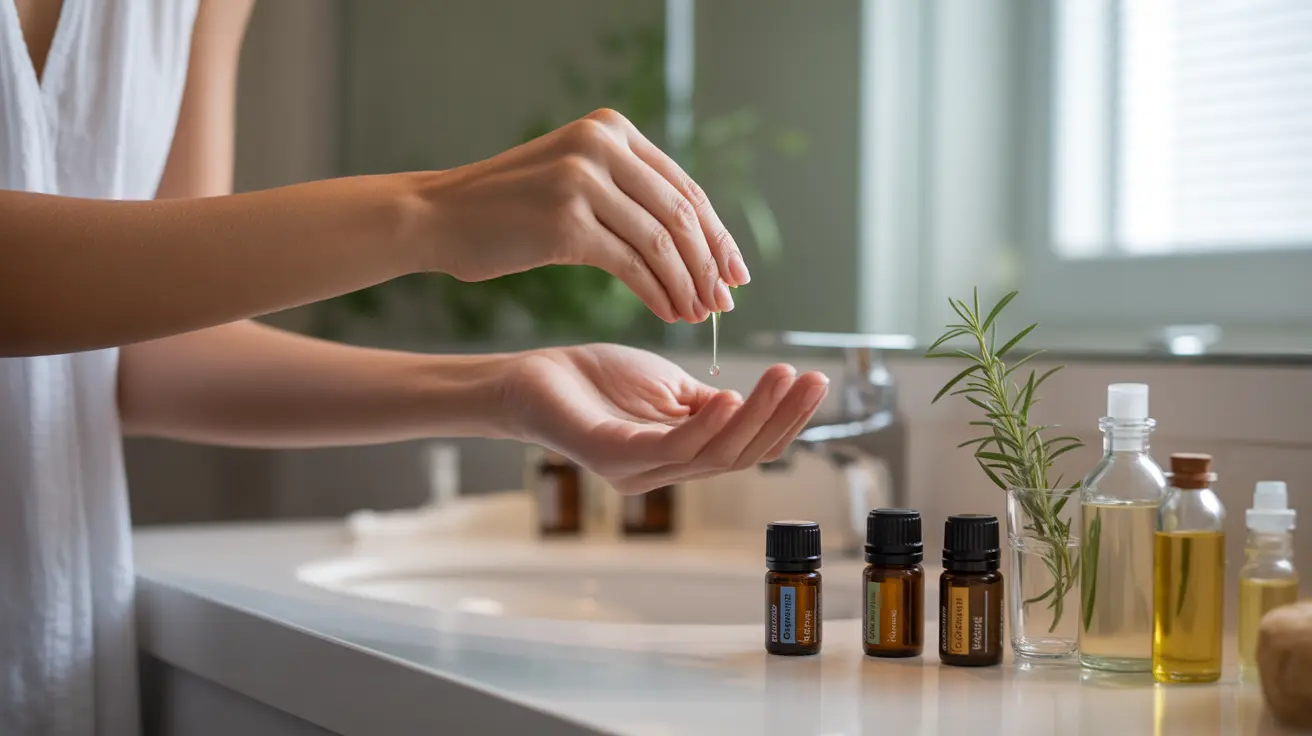If you're seeking natural alternatives for acne treatment, essential oils offer promising benefits for managing breakouts and promoting clearer skin. These concentrated plant extracts contain powerful compounds with antibacterial, anti-inflammatory, and healing properties that can help address various types of acne.
Understanding how to properly use essential oils for acne treatment is crucial for achieving optimal results while avoiding potential skin irritation. Let's explore the most effective essential oils for acne and learn how to incorporate them safely into your skincare routine.
Most Effective Essential Oils for Treating Acne
Several essential oils have shown particular promise in treating acne due to their unique properties:
Tea Tree Oil
Tea tree oil stands out as one of the most well-researched essential oils for acne treatment. Its natural antibacterial properties help combat P. acnes bacteria while reducing inflammation. Studies have shown it can be as effective as 5% benzoyl peroxide for mild to moderate acne.
Lavender Oil
Known for its calming properties, lavender oil offers both antibacterial and anti-inflammatory benefits. It can help reduce redness and inflammation while promoting skin healing, making it especially useful for stress-related breakouts.
Rosemary Oil
This oil contains natural antimicrobial compounds that help fight acne-causing bacteria. It also helps regulate oil production and reduces inflammation, making it particularly effective for oily, acne-prone skin.
Safe Application Methods and Dilution Guidelines
Proper dilution and application of essential oils is crucial for safety and effectiveness:
- Always dilute essential oils with a carrier oil (1-2 drops per teaspoon)
- Perform a patch test before full application
- Start with lower concentrations and increase gradually
- Never apply undiluted essential oils directly to the skin
Recommended Carrier Oils
Choose carrier oils that won't clog pores:
- Jojoba oil
- Grapeseed oil
- Hemp seed oil
- Rosehip oil
Best Practices for Essential Oil Use
To maximize the benefits of essential oils for acne treatment:
- Cleanse skin thoroughly before application
- Apply during your nighttime routine
- Store oils in dark, glass bottles away from sunlight
- Replace oils that smell rancid or have expired
- Discontinue use if irritation occurs
Frequently Asked Questions
What are the best essential oils for treating acne and how do they work?
The most effective essential oils for acne include tea tree, lavender, and rosemary oil. They work through their antibacterial, anti-inflammatory, and healing properties to fight acne-causing bacteria, reduce inflammation, and promote skin repair.
How should I safely apply essential oils to my skin to avoid irritation or side effects?
Always dilute essential oils with a suitable carrier oil using a 1-2% dilution ratio (1-2 drops per teaspoon of carrier oil). Perform a patch test first, and never apply undiluted oils directly to your skin. Apply to clean skin and watch for any adverse reactions.
Can essential oils be as effective as conventional acne treatments like benzoyl peroxide or antibiotics?
Some essential oils, particularly tea tree oil, have shown comparable effectiveness to conventional treatments for mild to moderate acne. However, results can vary by individual, and severe acne may require traditional medical treatment under healthcare supervision.
What precautions should I take when using essential oils for acne, especially regarding sun sensitivity and allergies?
Some essential oils can increase sun sensitivity, so apply them at night or use sun protection. Always perform patch tests, avoid using oils if you have sensitive skin or known allergies, and discontinue use if irritation occurs. Pregnant women should consult healthcare providers before use.
How can I incorporate carrier oils with essential oils to improve acne treatment results?
Select non-comedogenic carrier oils like jojoba, grapeseed, or hemp seed oil. Mix 1-2 drops of essential oil per teaspoon of carrier oil. This combination helps deliver the active compounds while providing additional moisturizing and healing benefits for your skin.




